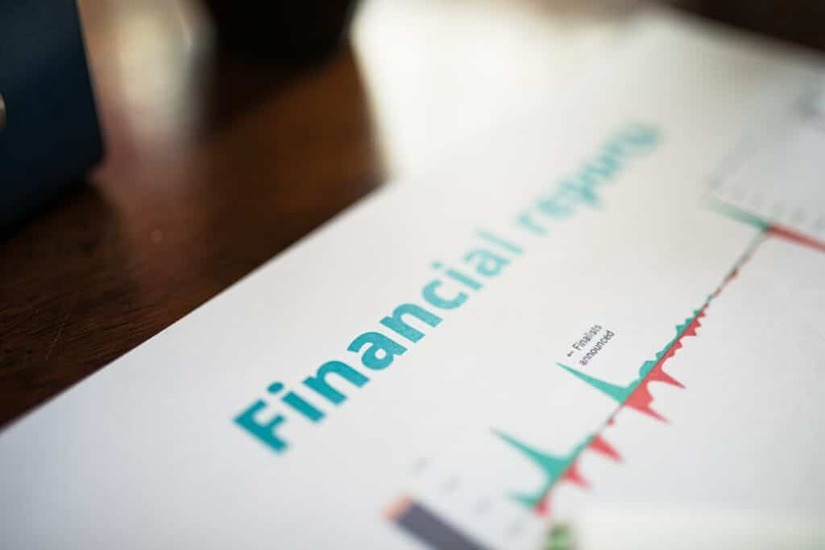Sustainable investing: What is it and why you should consider it
If you have any questions or want to invest as an expat or high-net-worth individual, you can email me (advice@adamfayed.com) or use these contact options.
Table of Contents
Introduction
As environmental, social, and governance (ESG) standards are gaining traction with companies across the globe, the act of sustainable investing is also becoming more popular.
In essence, sustainable investing is the way of thinking about investing that reflects your values. It’s about making sure your investments are good for people and the environment, while at the same time it can help you get more out of your money than traditional investing does.
When you choose to invest in businesses that have a positive impact on society, those that follow international ESG standards, sometimes called “sustainable” companies, you’ll do more than just make your money grow: You’ll also be helping to create a better world for future generations.
In this article, we will discuss the intricacies of sustainable investing and the merits of switching your investments to more sustainable ones.

What is Sustainable Investing?
Sustainable investing is a way to invest in companies that are environmentally and socially responsible. The concept has been around for decades, but it’s only recently become a buzzword with financial advisors and investors looking to make their portfolios more sustainable.
The core of sustainable investing is rooted in the belief that making investments that are more financially sustainable can help both individuals, companies, and society in general without losing out on profit.
Studies have shown that purpose-driven leaders and companies can prosper as they address the largest problems facing the world by establishing sustainable business strategies.
The term “sustainable investing” refers to a variety of strategies used by investors to maximize financial gains while advancing long-term environmental or social value.
Investors have produced more thorough assessments and made better investment decisions by fusing conventional investment methods with environmental, social, and corporate governance (ESG) insights.
Sustainable investing makes ensuring that businesses are evaluated for their contributions to society as a whole rather than only for their short-term financial success. Investors need to consider closely how investments may affect the political, social, and environmental environments.
As an individual investor, your goal in sustainable investing is simple: you want to minimize your carbon footprint while still generating enough income that your investments can pay for themselves over time.
You should also ensure that the companies you are investing in have a purpose aligned with your values and widely accepted ESG standards set by international organizations.
Sustainable investing can take on many different forms, including passive or active management strategies depending on how much you want to influence the market itself—and whether or not you’re comfortable with having no say in what happens next.
How does sustainable investing work?
Sustainable investing is a way of investing in companies that have a positive impact on the world. It involves taking into account both financial and environmental factors when making investment decisions, and it can be done through a number of different methods.
Investing in companies that have a positive impact on the world. While this may seem obvious, there are many businesses out there whose goal is not just profit but also improving conditions for their employees or customers or all three at once.
Many investors consider sustainable investing to be synonymous with ESG investing.
ESG investing is a way of assessing investment choices based on environmental and social impact as well as financial return. ESG factors include corporate governance, social policies, philanthropy and environmental impact.
Investors are using these non-financial aspects more frequently as part of their analytical process to spot important risks and expansion prospects.
Although firms are increasingly disclosing more of such information in their annual reports or in a separate sustainability report, ESG measures are not commonly included in required financial reporting.
Numerous organizations are working to create standards and define materiality to make it easier to incorporate these factors into the investment process, including the Sustainability Accounting Standards Board (SASB), the Global Reporting Initiative (GRI), and the Task Force on Climate-related Financial Disclosures (TCFD).
It’s worth noting that this is not just about spotting companies with poor track records — it’s also about investing in industries that have good values like renewable energy or fair trade practices.
Sustainable investing is not just for public companies. It can also apply to private companies, and even individuals. The idea behind it is to invest in sustainable companies as a way to make a difference in the world. It’s something anyone can do, anywhere.
Needless to say, sustainable investing is still about making money, but it’s also about making a positive impact at the same time. Sustainable investing is a way of assessing investment choices based on environmental and social impact as well as financial return. Sustainable, or “socially responsible” investors seek to make sure that their investments represent a good balance between profit and loss.
Many investment firms are developing investment products that help investors achieve their goals in a sustainable way.
In fact, many financial planners and financial advisers can help you invest your money in a way that supports good stewardship of the planet—and at the same time help you meet your financial objectives.
Is sustainable investing the same as ethical investing?
While it might look similar, sustainable investing is not the same as ethical investing. The term “ethical investing” refers to the practice of choosing investments in securities primarily based on one’s ethical convictions.
This means that investing ethics are determined by the investor’s beliefs, no matter if those beliefs correspond to ESG standards.
This is the main difference between it and socially conscious investing, as often there is a broad set of rules that are used to select the portfolio for the latter, whereas ethical investing results in a more individualized outcome.
In practicality, however, these terms can be used interchangeably. Many people who follow an ethical investment strategy will also invest in a socially responsible fund or mutual fund because they believe these funds represent good value for their money and they align with their own values.
What are examples of sustainable investing?
Sustainable investing is an investment strategy that incorporates the social, environmental and governance (ESG) factors into investment decisions.
ESG factors include climate change, human rights and corporate governance. They are used to assess the impact of investments on our environment, society and economy.
When it comes to sustainable investing you need to know how each component works together in order for it to be considered effective at meeting your goals as an investor.
ESG investors look at potential impacts before making any decision about which companies should be included in their portfolios. At the same time, they try not only find out if a company has been involved in social issues such as child labour or slavery, as well as if it was taking steps towards eliminating these practices.
There is also the corporate governance aspects which includes investors reviewing laws governing any business activity (such as financial reporting) of the companies they are investing in so as not only ensure compliance with regulations but also encourage positive behavior among employees.
What are some sustainable investing strategies?
Sustainable investment can be passive or active. Passive investing involves buying into funds that are already screened, or that have a sustainability policy. Active investing involves choosing companies to invest in based on their sustainability policies.
Three forms of sustainable investing include negative screening, positive screening and impact investment.
Negative screening is a method of sustainable investing that seeks to exclude certain companies, sectors, or practices from your investment portfolio. This is usually determined by ESG criteria.
This type of sustainable investing excludes companies that are deemed to have negative impacts on the environment or society at large. For instance, an ESG-conscious investor might completely avoid any investments in the coal and petroleum industry or tobacco companies.
Positive screening, on the other hand, involves investing in companies that have a positive social and environmental impact on society. Impact investing takes this concept further by incorporating both areas into one investment strategy.
Essentially, purchasing stock in a firm with the intention of changing how it runs is known as active investing.
Active investing involves making investment choices based on moral principles or causes that are important to the businesses and their executives. For example, individuals who strongly care about global warming may invest in a company that drives environmental change.
Impact investing, meanwhile, is when you select investments with the intention of addressing social or environmental issues. It includes community investing, where capital is directed to traditionally underserved individuals or communities and financing is provided to businesses with clear social or environmental purposes.
While impact investing is traditionally referred to as a private market strategy, there are now public market funds that identify as impact investors.
Should you switch to sustainable investments?
Research has shown that investors in sustainable funds have outperformed those in traditional funds over the last decade.
According to the Global Sustainable Investment Alliance, sustainable investing is increasing internationally, with assets under management rising from $30.7 trillion in 2018 to $35.3 trillion in 2020. (GSIA).
That’s why people are turning to it as a way to help protect their portfolios and the environment, while also making money.
The concept of sustainable investing is simple: It’s all about doing good by doing well. By choosing companies that practice environmental responsibility or contribute their profits back into society, investors can earn returns on their investments while supporting positive change at home and abroad—all without having to sacrifice returns or risk losing money.
Sustainable investing can mean different things to different people, so it’s important to understand what you’re getting into when you start looking for sustainable investments.
The demand from millennials and impact investors concerned with ethical investment—or backing businesses with inherent values that create a positive impact and promote change—has led to an increase in the popularity of sustainable investing.
Companies are encouraged to adopt sustainable practices by sustainable investing, which can result in long-term social and financial rewards. The triple bottom line, or the idea that corporations should measure their social and environmental impacts in addition to their financial performance and pursuit of profit, is an embodiment of this concept.
Sustainable investing also has the added benefit of promoting sustainable business practices that leads to the development of mission-driven companies that have positive social and environmental effects beyond just providing goods or services.
Moreover, sustainable business practices are frequently used to find solutions to major global problems like climate change.
Learning about sustainable investment methods will help you decide where and when to invest based on your values and market trends. For instance, some investors are under rising pressure from asset owners to focus more on sustainability as companies are encouraged to be sustainable.
Sustainable investing is the new way to invest. Sustainable investing is an emerging field, and it’s growing at an exponential rate. It’s also a way to invest in a better future, as well as a profitable one.
Sustainable investing involves looking at environmental factors and taking those into account when making decisions about what stocks and funds you should buy or sell.
Of course, you should conduct your own research before making any ESG-based investments.
Many experts and organizations release annual “best of” lists for the top-rated ESG equities as a starting point, which can assist you in finding investments that suit your strategy.
In order to avoid picking investments manually, you may alternatively choose funds. By entering “ESG” into their screening tools, brokerages frequently have ESG-focused funds available.
The best and most convenient course of action is to work with a financial planner or financial advisor that knows how to make sustainable investments.
Working with an ESG financial advisor who takes into account and incorporates your whole financial portfolio and personal goals into your investment accounts is a great option as you can benefit from their expertise in specialized investing techniques and have the peace of mind that a professional is handling your investments.

The goal of sustainable investing is not just making money but also protecting their investments from any negative effects caused by climate change or other environmental issues like pollution, deforestation or overfishing.
It’s not just about making a difference for the earth, but also for your portfolio. You can make your investments in a way that will help you preserve our planet while also increasing your bottom line at the same time.
Pained by financial indecision? Want to invest with Adam?

Adam is an internationally recognised author on financial matters, with over 760.2 million answer views on Quora.com, a widely sold book on Amazon, and a contributor on Forbes.



